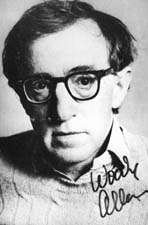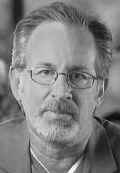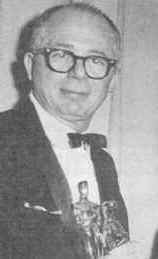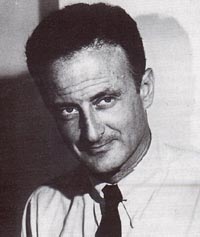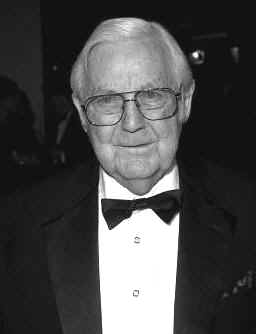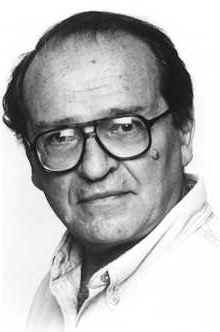|
Edward Peters
It's fun when your kids get to the point where they can identify five films that were released more than 50 years ago, name a star in them, and correctly summarize the plot in a sentence. If they can tell you who wrote and directed, it's off to Burger-Doodle.
|
Book Note: Richard Schickel, Woody Allen: A Life in Film (Ivan R. Dee, Chicago: 2003) 211 pages, paperback, $ 14.95. ISBN:1-56663-528-4. One-hundred page interview with Allen, prefaced by a sixty page essay from Schickel, and about twenty pages of routine filmography. Recommended.
While the great value of this book is Allen’s extended discussion of his own work, Schickel’s introductory essay is generally insightful—often a pleasure to read—especially if you’ve seen all, or most, of Allen’s films. Schickel is very sympathetic to Allen, without becoming a sycophant, and he was able to put the notoriously withdrawn auteur sufficiently at ease to let him speak for himself. Because this book is so much Allen, it provides a gold mine for students pondering (I don’t think that term pretentious here) his films. In brief, the data offered is highly accurate; it’s the interpretation that will cause disputes. I, for one, have always harbored the suspicion that Allen himself (though Schickel as well) underestimates keys aspects of movies like Interiors, Another Woman, Alice, and even Hannah and Her Sisters, while making too much of works such as Celebrity. Anyway, thanks to Schickel, I now have at a minimum more evidence of such “misreading” on their part, and perhaps even fodder for my rejoinders. All in due time, of course. Note a few small but inexplicable essay errors: Schickel asserts (p. 38) that the family in Radio Days is not explicitly identifiable as Jewish, but who can watch Uncle Abe’s antics on the Day of Atonement and not conclude that this family is completely Jewish, and observant ones at that? In Mighty Aphrodite, moreover, Lenny does not “obsessively worry” (p. 55) about whether he fathered a child with Linda Ash; that's not even possible until very near the end of the story, and such an error makes shambles of a main plot point. Finally (and this is not an essay error, but comes across as an interview glitch) I winced when Schickel asked Allen (p. 83) to give a couple examples of his dependence on Bob Hope in Love and Death. As Allen answered, “Oh, all over the place.” Indeed.
I don't think Hitchcock films stand the Test of Time: that is, most do not reward a second (let alone a third) viewing, and with each passing decade, even those coming to a Hitchcock film for the first time risk being turned off by the shallow psychology that passed for avant garde insights in the '50s and '60s, but now are hollow clichés. Some Hitchcock films are plainly gimmicky (Rope), some are miscast (Doris Day in Man Who Knew Too Much, or even Laurence Olivier in Rebecca, who projects an on-camera image of one who thinks he's doing the morons in movie-land a huge favor simply by appearing), and a few are just badly cast (anything with Tippi Hedren). For all that, Psycho is a masterpiece, of course, with Rear Window and To Catch a Thief close behind. One should see The Birds (ignore Hedren's gratuitous snap "Not my mother!" offered as if it were significant for the plot), North by Northwest, and Dial M for Murder (one of Ray Milland's finest performances). PS: Mel Brooks did a campy spoof of Hitchcock, High Anxiety. Not his best, but funny in places, a see-once.
Edward D. Wood, Jr. ("It's hard to find something when you don't know what you're looking for." Patrolman Larry, Plan 9)
Everyone knows that Ed Wood is perhaps the worst director in American (no, make that, world) history, so bad that not even MST3K would mist one of his films ("Some things are sacred." said Joel Hodgkin.) But if one is to fully appreciate what might be Johnny Depp's best performance to date--as Ed in Ed Wood (1994)--one has to have suffered through Glen or Glenda (1953), Bride of the Monster (1955), and of course, Plan 9 from Outer Space (1959). Go on. Pull the string! Pull the string!
Essential Actors || Essential Actresses || Essential Genres Top || Home || Canon Law || Liturgy & Sacraments || Catholic Issues || Personal |
